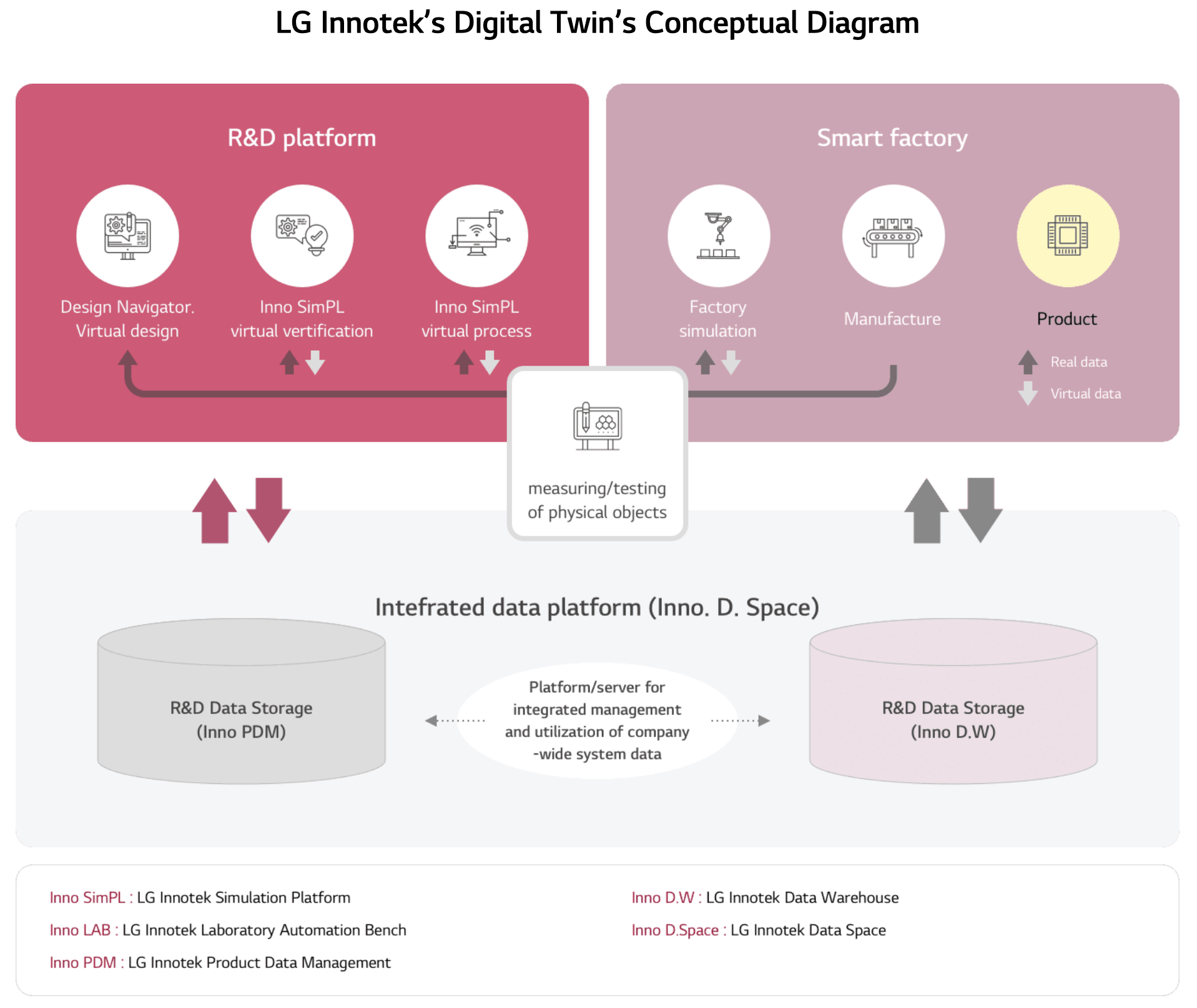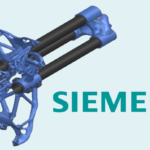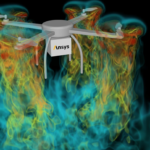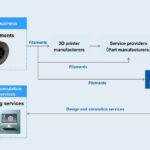ASIA ELECTRONICS INDUSTRYYOUR WINDOW TO SMART MANUFACTURING
LG Innotek to Drive Digital Twin in Latest Ansys Tie-up
LG Innotek is accelerating its digital transformation to enhance business competitiveness.
On August 22, LG Innotek announced that it will partner with Ansys, a top engineering simulation company, to expand the application of digital twin technology to all its processes.
Particularly, digital twin is a technology that replicates objects in a virtual space to predict the outcomes of possible real-life situations through computer simulations. Mainly, it is heralded as a technology capable of solving various industrial and social problems. Today, it is being rapidly deployed in the manufacturing industry as it can reduce product development time and costs.
Meanwhile, Ansys is known to possess world-leading technology and deployment experience in the field of simulation using 3D modeling, artificial intelligence (AI), and machine learning (ML). By collaborating with Ansys, LG Innotek will be able to leverage its latest digital twin solutions and simulation software to build a state-of-the-art digital twin environment.

Application of Digital Twin to Production
Together with Ansys, LG Innotek conducted a trial application of its digital twin technology to some development and production processes. Accordingly, they achieved tangible results.
In the future, the company plans to expand the application of digital twin to the development and production processes of its entire product range. Among them include autonomous driving components such as vehicle connectivity and sensing devices.
Preliminary verification of designs using virtual simulation, reducing development time by 99%
LG Innotek is reaping the benefits of its digital twin in R&D. After verifying designs in a virtual environment, the company uses the data to minimize the number of tests that need to be conducted and the time it takes to conduct them.
Specifically, it applied digital twin technology to the development of package substrate products for semiconductors. Consequently, it managed to reduce the development time by 99%.
Mainly, substrates require the minimization of warpage caused by heat and pressure, to which they are exposed during manufacturing. This is achieved through a simulation process that optimizes the combination of the circuit design structure and materials composition ratio. Using virtual simulation through 3D modeling, LG Innotek has reduced the time required to predict the degree of warpage of a single substrate from 11 days to 3.6 hours.
Increasing deployment of digital twin to FC-BGA and electronic component production processes, maximizing manufacturing competitiveness
Moreover, LG Innotek has expanded the application of digital twin technology from product development to FC-BGA (Flip-Chip Ball-Grid Array) production. Accordingly, the company has succeeded in halving the ramp-up period by establishing optimal conditions for the FC-BGA production equipment. Specifically, ramp-up period is the increase in production capacity by enhancing yield in the early phases of mass production.
In the past, the company had to conduct hundreds of tests to identify the optimal FC-BGA process conditions, which relied heavily on time and money. Using 3D modeling, it has replicated the FC-BGA production process in a virtual space.
Running the process in a virtual space enables the computer to visualize and identify problems that could occur with various process equipment. This makes it possible to meticulously optimize conditions, such as the flow of liquids, heat, and air that cannot be measured inside such equipment.
Also, LG Innotek has managed to increase productivity by actively using digital twin in the production process of electronic vehicle components. Electronic vehicle components have a long product lifespan and are highly vulnerable to the weather; thus, ensuring quality and reliability is crucial.
Particularly, it applied digital twin technology to the soldering process, which is a key process for ensuring the reliability of electronic vehicle components. Here, the soldering process was simulated in a virtual space to predict the time it takes for the solder to crack. By optimizing process conditions such as the amount of solder applied and nozzle design to delay cracking as much as possible, the company plans to increase productivity by 40% compared to the previous process.
“LG Innotek to become a ‘meta-manufacturing’ company by advancing digital twin technology”
Through its partnership with Ansys, LG Innotek plans to rapidly expand the use of digital twin technology to all product lines and processes. These include new growth businesses such as vehicle communication modules and LiDAR devices.
Future Plans
In the future, the company plans to expand the use of digital twin technology to customers and partners across the entire value chain, from development to production. As a result, they will be able to collaborate on product design and simulate the efficiency of production processes on the virtual digital twin platform built by LG Innotek.
All of the data generated in the virtual space will be collected in realtime and used to improve product design and customer processes. Mainly, all data from LG Innotek, its partners, and customers will be organically connected and shared in realtime. This would enable systematic quality control and efficient development.
Further, AI will be applied to the virtual design and quality process verification to increase simulation speed and accuracy. AI will learn from the data collected through simulation to derive optimal solutions and support decision-making by engineers. LG Innotek believes the productivity gains will be multiplied by combining the strengths of virtualization and AI technology.
LG Innotek Chief Technology Officer S. David Roh said, “The future we envision at LG Innotek is meta-manufacturing, where simulation results from a virtual space are linked to physical production facilities and automatically lead to actual production.” He added, “To this end, we will rapidly apply advanced digital twin technology to the entire value chain, including R&D, production, and quality control, to create differentiated customer value.”
-27 August 2024-




